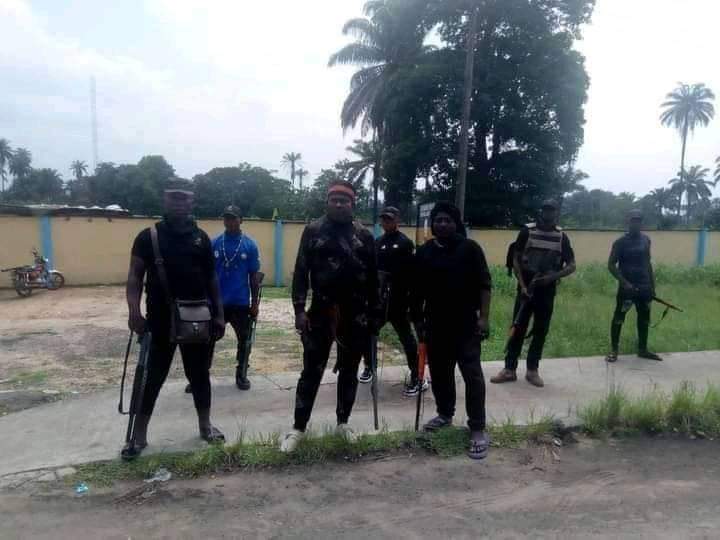By Kelechi Esogwa-Amadi
In recent times, the incidence of attacks by unknown gunmen has been recurrent in Rivers State and expectedly, the media has been awash with the news. From last month’s attack on security operatives manning checkpoints at Port Harcourt–Owerri Road (precisely from Omagwa — Elele) to the attacks on security operatives at Abua, Elimgbu (Obio/Akpor) and Rumuji (Emohua), it has been one horrible story of gunmen attack to another.
At the last count, over 14 security officers have been killed in the process. To stem the tide, Rivers State Governor, Nyesom Ezenwo Wike, imposed a dusk-dawn curfew in state, first from 8 p.m. — 6a.m., then 7p.m. — 6a.m. and later 8:30p.m.– 6a.m. The curfew was aimed at curtailing vehicular and human movements in the state, thus denying the gunmen the opportunity to hide under such crowdy movements to launch their attacks.
Although the measure may have paid off to an extent, as the frequency of attacks by gunmen has reduced, many security experts believe that it will not provide a holistic, permanent solution to the problem of insecurity in Rivers State. Some of them have severally a expressed the view that more effective measures should be put in place by government authorities to stop the menace. And this is where the onus lies.
Until the government authorities devise effective, technology-driven, Intelligence-oriented and fiscally-intensive, non-biased strategies to tackle insecurity in the country, cases of insecurity, including attacks by gunmen, will always be a recurrent decimal. And this is where the Nyesom Wike administration has to sit up.
Beyond the imposition of curfews, efforts should be made to beef up the intelligence profile of the security agencies. Then, there should be an effective mechanism for sharing of this intelligence among the various security agencies. To further make this more effective, the security agencies should should work with the local security outfits like vigilante groups and maintain a robust relationship with them in terms of information sharing, among others.
This present 21st century is powered by information, communication and technology (ICT) in every sector, including security. That is why nations, states, communities are investing heavily into it, in order not to be left out in the hot race for survival. Rivers State should key into this by pumping money into the ICT sector, the gains of which should, in turn, be deployed to strengthen the security sector.
As an oil-producing state that is part of economic pillars of Nigeria, Rivers can’t afford to toy with insecurity, which has occasionally reared its ugly head, claiming precious lives and causing high profile deaths in the process.
For instance, the likes of Chief Marshal Harry, Chief A.K. Dikibo, Amb. Ignatius Ajuru, Hon. Charles Nsiegbe, Barr Ken Atsuwete, Hon. Felicia Nte and many other low profile individuals have, over the years, fallen victims to unknown gunmen’s bullets. Last two years or so, a pastor of the Redeemed Christian Church of God was allegedly shot dead at the altar. And many more cases.
Given these prevailing circumstances have made it imperative for the Rivers State government to be more proactive and pragmatic in its fight against insecurity.
By now there should be an efficient tracking system in the state. Close Circuit Televisions (CCTVs) should dot every junction, police station, check point and other strategic spots in the state, especially in Port Harcourt and Obio/Akpor. During an ICT summit held last year in Port Harcourt under the auspices of the office of the Special Adviser to the Governor on ICT, a lot of recommendations were made by ICT experts. Some of those Recommendations have some bearing on the security sector. But not much has been heard of them till now.
I believe that this is the time to implement some of them that relate to security. The Wike government, no doubt, has been very supportive, generous and liberal to security agencies, providing vehicles for patrol, among others. But it needs to put in a little more effort to achieve a more effective security that can contain and curtail the incidence of gunmen attacks. A stitch in time, they say, saves nine.




